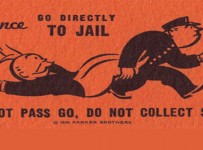Pretend you are a world-class sprinter. You spend hours every day on the track, running until your legs can run no longer. You train your entire life for one day… the Olympics.
The big day comes and…I have good news and I have bad news.
Good news is you win a medal. Bad news is you didn’t win gold.
Do you think you’d be happier with your performance if you received the silver medal or the bronze medal?
While you think about your answer, lets see what Jerry Seinfeld thinks…
As funny as it seems, Seinfeld may just be exactly right.
Research suggests that athletes who win bronze medals are actually happier than those who win silver medals. The reason comes in the way the athletes think about their performance.
Psychologists analyzed the emotional reactions of bronze and silver medalists at the 1992 Summer Olympics and concluded that silver medalists focused on the idea that had they performed slightly better, they would have won the gold medal. Conversely, those athletes who won the bronze, focused on the fact that if they performed slightly worse, they would have gone home medal-less.
Our ability to imagine what could have happened vs. what actually happened is called “counter-factual thinking.” Counterfactuals are thoughts of what might have been. When you think about how the past might have unfolded rather than how it actually unfolded.
In case this all seems like psychologist mumbo-jumbo, let’s look at an example of counter-factual thinking from the movie The Mighty Ducks, because, who better to learn from than Gordon Bombay…
“A quarter of an inch this way and it would have gone in,” says coach Bombay.
“Well, yeah, but a quarter of an inch the other way and you would have missed completely,” says Charlie Conway.
Bombay played the role of the silver medal winner who thinks of nothing other than how he was a quarter of an inch away from being a champion. Conway’s thoughts focused on how close Bombay was from a big-time miss.
Is it possible that one outlook makes a person lucky, whereas, the opposite outlook leads to bad luck?
Luck expert Richard Wiseman says that not only is it possible, it is proven.
Wiseman’s ten year study of the nature of luck revealed that people can make their own good or bad fortune. One way this happens is through counter-factual thinking.
Wiseman presented lucky and unlucky people with the following scenario:
You are waiting in line at the bank. Suddenly, an armed robber enters the bank and fires his gun. The shot hits you in the arm.
He then asked the participants how they would react and if they would view this event as lucky or unlucky?
Those categorized as unlucky tended to say that this event would be extremely unlucky and it would be just their bad luck to be involved in such an incident. In contrast, lucky people saw the event as far luckier, commenting that the situation could have been much worse.
According to Wiseman, “The differences between the lucky and unlucky people were striking. Lucky people tend to imagine spontaneously how the bad luck they encounter could have been worse and, in doing so, they feel much better about themselves and their lives. This, in turn, helps keep their expectations about the future high, and, increases the likelihood of them continuing to live a lucky life.”
Going back to our example from The Mighty Ducks, Bombay was so focused on his ill fortune. And if you have seen the movie, you know that this pessimistic viewpoint permeated into many aspects of his life. In contrast, Charlie said, “At least you got to play in a championship game. God that must have been so cool.” With that attitude, we can expect that Charlie will lead a much luckier life.
Spoiler alert — as Mighty Ducks 1, 2 & 3 show, Charlie does end up very lucky. And if we follow his lead, we too might just increase our luck.
Photo credit: Wikipedia




